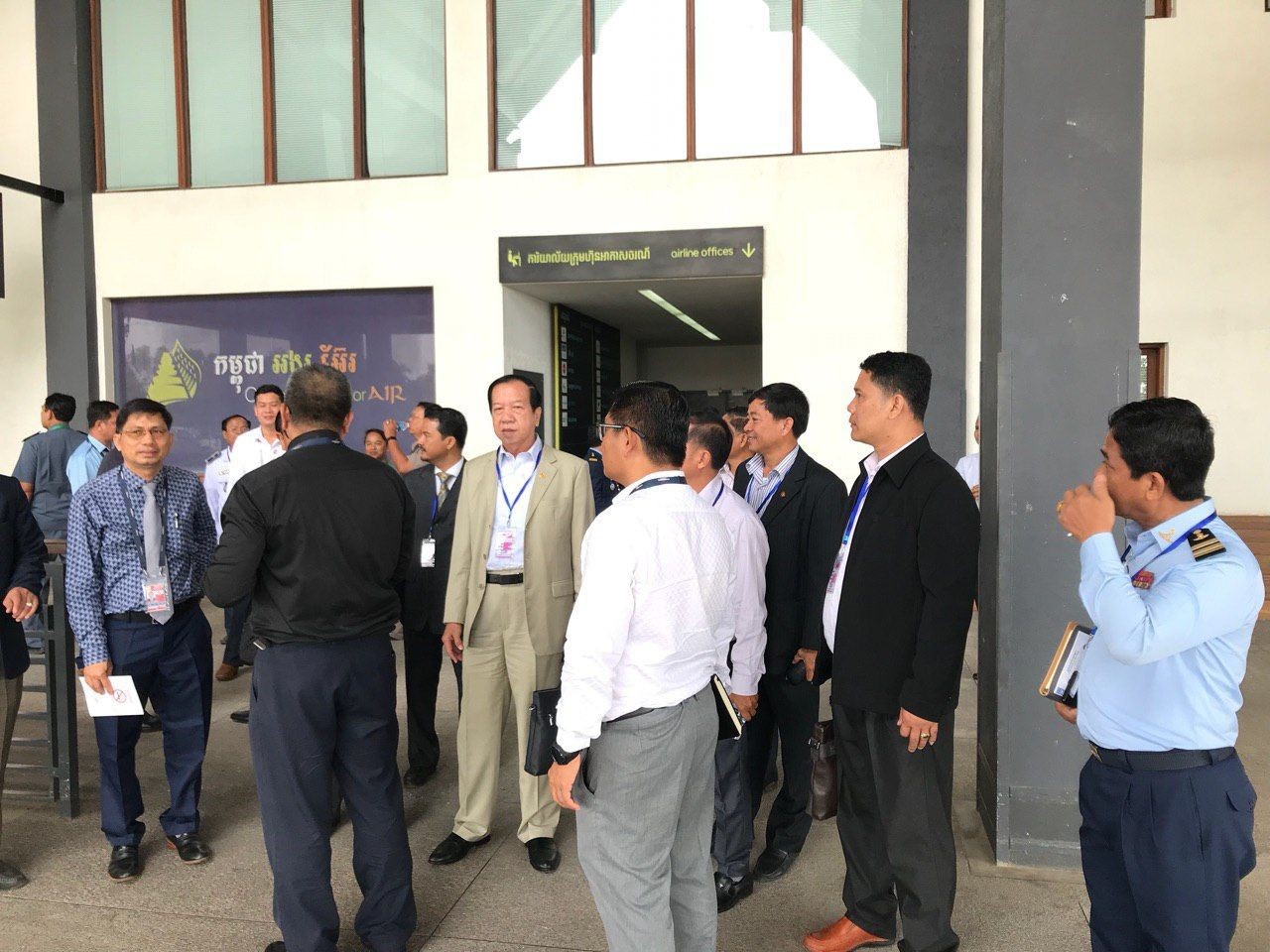
WHO is working closely with government ministries and other partners to make sure that airports in Cambodia are complying with the country’s Law on Tobacco Control. Tobacco kills 8 million people globally each year. In Cambodia over 2 million adults use tobacco, including a third of all men. Tobacco consumption is responsible for approximately 14,000 deaths per year in Cambodia and tobacco-related illnesses costs the country the equivalent of 2.6% of GDP each year.
Following a successful meeting at the Phnom Penh International Airport, the Ministry of Health, the Ministry of Tourism and the State Secretariat of Civil Aviation held a meeting with the Management of Siem Reap International Airport, supported by WHO and other partners to:
- Disseminate knowledge on Tobacco Control Law;
- Provide recommendations to airport management for complying with the Law;
- Promote healthy lifestyles and smoke-free environments at the Siem Reap International Airport.
His Excellency Hor Sarun, the head of the Working Group and Undersecretary of State at the Ministry of Tourism opened the meeting. The participants also toured the airport including the Duty-Free Shop. Some of irregularities were noted with the display and sale of cigarettes, including cigarette packs without health warnings in Khmer or without pictorial health warning labels.

These were discussed with airport management in order to comply with the Tobacco Control Law as follows:
- Ashtrays to be removed away from the roof, more “No Smoking” signs clearly visible by the public.
- Ensure authorities intervene when smokers violate smoking bans.
- Ensure that all cigarette packs sold at Siem Reap International Airport are covered with 50% pictorial health warning and 5% text warning messages in Khmer language.
- Display only one pack of cigarette per brand on plain brown displays.
- Ensure that cigarette packs to be sold carry tobacco excise tax stamp.
Any violation of the tobacco control law can result in fines and airport management has pledged to take actions to improve their compliance with the law, including a commitment to build a separate smoking room.
Protecting people from the dangers of smoking and second-hand smoke requires ongoing monitoring, enforcement and cooperation. WHO is committed to working with the Ministry of Health and the Ministry of Tourism of the Royal Government of Cambodia in this noble endeavor to protect the health of the Cambodian people.
